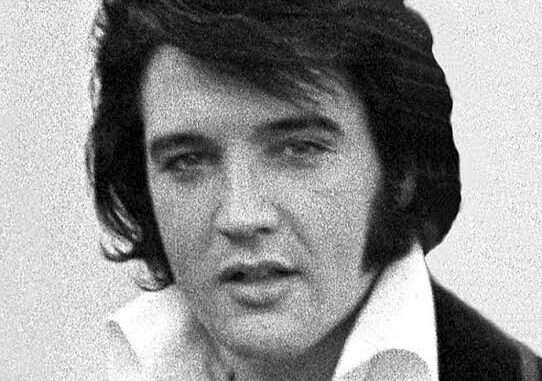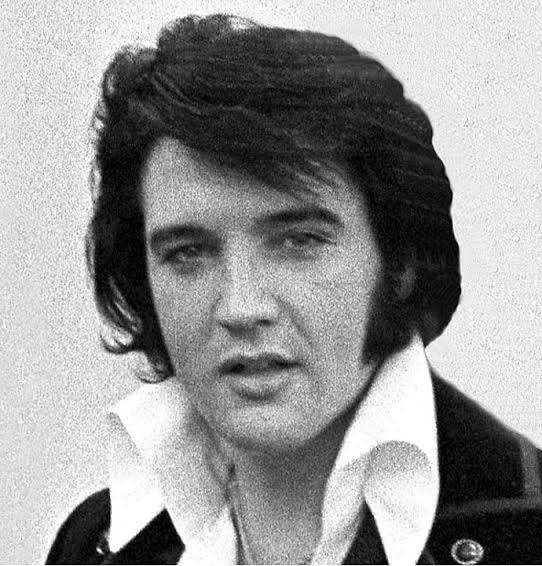
In Jerry Schilling’s memoir Me and a Guy Named Elvis, one particular moment stands out as a poignant reminder of the depth of his bond with Elvis Presley—a connection that transcended celebrity and business. Schilling reflects on an instance when he felt more connected to Elvis than ever before, but it wasn’t just a shared professional partnership or admiration for the King of Rock ‘n’ Roll. It was something far more personal, and it came with a lesson on kindness, generosity, and the complexities of Elvis’s business dealings.
As Schilling recounts, Elvis’s gift to him—a beautiful home—was a moment of significance. The house, perched high in the canyon, offered a breathtaking view of Hollywood and beyond. For Schilling, it represented more than just a place to live. It symbolized the kindness and thoughtfulness that Elvis had shown, especially considering Schilling’s turbulent past. Having lost his mother when he was only a year old, Schilling had never truly known the comfort of a “home.” Elvis understood this and made it his mission to provide that stability, a gesture that carried far more weight than the gift of bricks and mortar.
However, the transaction wasn’t as simple as it seemed. In the business world of Elvis Presley, there were always hurdles to overcome—one of the most significant being the Colonel, Elvis’s manager. Known for his tough, often unsympathetic approach to matters of the heart, the Colonel had a reputation for undermining personal gestures when they conflicted with business interests. Schilling feared that the Colonel might find a way to interfere with Elvis’s gift, just as he had once dismissed Schilling’s “Personal Public Relations” business cards. The idea of the Colonel quashing the deal and ruining something so meaningful to both him and Elvis was a constant worry.
In an effort to protect the deal, Schilling took matters into his own hands. With a security guard accompanying him, he cashed the check for the house, making sure that Elvis’s intention to help him wasn’t undermined
The house was everything Schilling had dreamed of. High up in the canyon, it offered an expansive view that reminded Elvis of his own Hillcrest house. And for the first time in his life, Schilling found himself in the role of host, with Elvis as the guest. The contrast was striking, as Schilling reflected on the significance of their changing dynamic. The housewarming party that followed was a surreal moment—Elvis, along with his trusted companions Joe Esposito, Dean Nichopoulos, and Linda Thompson, all gathered in Schilling’s new home, celebrating not just the physical space, but their enduring friendship.
For Schilling, it was a moment of reflection and gratitude. The new home, gifted by Elvis, was more than just a house—it was a symbol of the love and care that Elvis had always shown him, especially when he needed it the most. As Schilling recalled a conversation with Elvis, the depth of the King’s intentions became clear. Elvis had confided that he had bought the house despite objections from others, explaining that he understood Schilling’s background and wanted to provide him with a sense of stability and belonging.
“You know, I drove the other guys crazy when I bought that for you,” Elvis had said. “But Jerry, your mother died when you were a year old. You never had a home. I wanted to be the one to give it to you.”
Elvis’s words were more than just a simple explanation—they were a reflection of his empathy and understanding. Elvis, despite his fame and complex life, was a man who cared deeply for those around him, especially those who had never truly known a sense of home. In this gesture, he gave Schilling not just a place to live, but a home in the truest sense of the word—filled with love, care, and a sense of belonging that Schilling had never experienced before.
This moment of connection between Schilling and Elvis highlights a rarely seen side of the rock ‘n’ roll legend. While Elvis’s career was often defined by his public persona and the management tactics of his Colonel, his personal actions toward Schilling reveal a man who understood the importance of home, family, and the ties that bind us. In giving Schilling that house, Elvis was offering something that couldn’t be measured in dollars and cents—a legacy of friendship and kindness that would stay with Schilling long after the music had faded.
The story of the house, the Colonel’s interference, and the gift of a home reflects the enduring bond between Jerry Schilling and Elvis Presley—a bond that wasn’t just about fame or business, but about something much more profound: love, generosity, and a friendship that went beyond the surface of the world they inhabited.
Leave a Reply